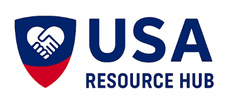Medical bills can pile up fast. A single emergency room visit or surgery may leave you owing thousands. Many people feel stuck, unsure how to handle the debt without hiring a lawyer. The truth is, you can often negotiate medical debt on your own, safely and effectively, if you know what to say and who to contact.
This guide breaks down practical steps to reduce what you owe, avoid collections, and protect your credit.
Understand Your Bill First
Before you negotiate, make sure the bill is accurate. Medical billing errors are common. You may be charged for services you never received or billed twice for the same item.
Start by asking for an itemized bill. Review each charge. Look for:
- Duplicate charges
- Services you did not receive
- Incorrect insurance adjustments
- Out-of-network fees that should not apply
If something looks off, contact the billing department. Ask for a correction. You have the right to dispute errors.
Know Your Rights
Hospitals and clinics must follow rules when collecting payments. They cannot threaten you or demand payment without giving you time to respond. You also have the right to ask for financial help.
Nonprofit hospitals are required to offer charity care or discounted rates to eligible patients. Even private providers may have hardship programs. These are not always advertised, so you need to ask.
Contact the Billing Office Directly
Skip the collection agency if possible. Once your debt is sold, options shrink. Call the hospital or provider before that happens. Be polite but firm. Explain your situation clearly.
Say something like:
“I want to pay what I can, but I cannot afford the full amount. Can we work out a lower balance or payment plan?”
Ask about:
- Financial hardship discounts
- Charity care programs
- Interest-free payment plans
- Settlement offers for lump-sum payments
Get everything in writing. Do not agree to anything over the phone without written confirmation.
Offer a Reasonable Payment
You do not need to pay the full amount to settle medical debt. Many providers will accept less, especially if you offer a lump sum. Start low but fair. For example, offer 30% to 50% of the total if you can pay right away.
If you cannot pay a lump sum, ask for a monthly plan. Choose an amount you can afford long-term. Missing payments may cancel the deal.
Use a Script to Stay Focused
It helps to write down what you want to say. That way, you stay calm and avoid agreeing to something you cannot afford. Here is a sample outline:
- Introduce yourself and explain your situation
- Ask for an itemized bill if you do not have one
- Point out any errors or insurance issues
- Request financial assistance or a discount
- Offer a payment plan or lump-sum settlement
- Ask for written confirmation of any agreement
Keep notes during the call. Write down names, dates, and what was said.
Avoid Common Mistakes
Do not ignore the bill. That may lead to collections or legal action. Also, do not agree to high-interest payment plans without checking the terms.
Avoid using credit cards or payday loans to pay medical debt. That may create more problems. Focus on working directly with the provider.
Get Help from a Nonprofit
You do not need a lawyer, but you can get free help. Nonprofit credit counselors and patient advocates can guide you through the process. They may help you:
- Review bills for errors
- Contact providers
- Set up payment plans
- Apply for financial aid
Look for groups like:
- RIP Medical Debt
- Dollar For
- National Foundation for Credit Counseling
- Local legal aid clinics
These groups do not charge fees and will not pressure you into risky loans.
Protect Your Credit
Medical debt does not hurt your credit right away. Providers usually wait 90 to 180 days before reporting unpaid bills. That gives you time to act.
Once you make a deal, ask the provider to mark the account as “paid in full” or “settled.” That may help your credit score.
If the debt is already in collections, you can still negotiate. Ask the agency to remove the account from your credit report once paid. Some will agree if you settle quickly.
You do not need a lawyer to lower your medical bills. With the right approach, you can fix errors, ask for help, and settle for less. Medical debt negotiation strategies work best when you act early, stay organized, and speak up.


Leave a Reply